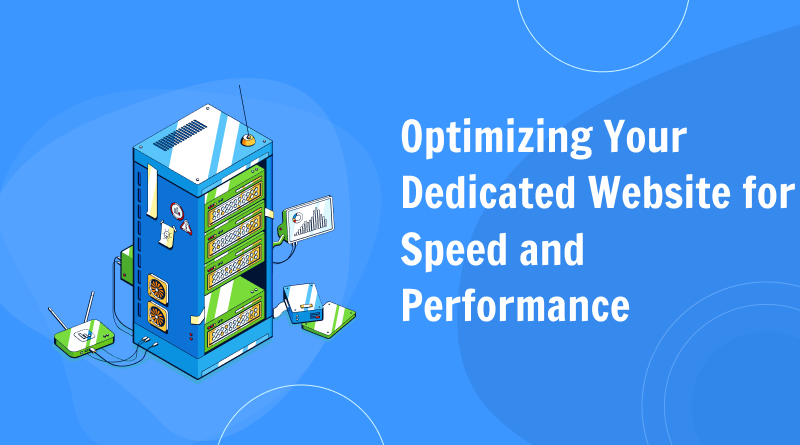In today’s fast-paced digital world, website speed reigns supreme. A website that runs slowly frustrates visitors and affects SEO ranking and sales rates. Dedicated servers offer unmatched power and control, although this only sometimes means fast-performing servers. Optimizing the site for your dedicated server is essential to opening it up to more opportunities. It is a myth that dedicated server hosting prices are higher. You will get reliable service providers offering affordable services.
In this blog, we discuss efficient ways to make your special website quick and searchable, giving the public perfect interactivity and expanding your existence online. Plus, we provide information about what MilesWeb, a top affordable dedicated server hosting, provides for users to create websites that operate at their best.
Optimization Techniques of Dedicated Servers
Assess and Analyze
It is essential to comprehend the up-to-date situation regarding the level of services your site brings before opting for optimization techniques. This. This mission is carried out well by the available website speeding testing tools. Popular among them are Google PageSpeed Insights, GTmetrix, and Pingdom. By using them, you will get a detailed report on different underperforming sections and also receive suggestions on what should be done to improve them.
Leverage the Power of Caching
Let’s break down what caching is all about. Caching refers to a mechanism used for temporarily storing copies of web content such as images, videos, CSS files, or JavaScript files on a user’s device. This saves lots of time because there is no need to download the same data during each visit, making pages load faster the next time they are visited.
MilesWeb offers multiple caching solutions:
Server-Side Caching: Websites like MilesWeb come pre-configured with inbuilt server-side caching systems like Varnish, which reduce server load massively and improve response time.
Browser Caching: MilesWeb supports industry-standard HTTP headers instructing browsers to cache website elements for a specific period.
Content Delivery Networks (CDNs)
A content delivery network (CDN) is a geographically distributed network of servers that stores static content from the site. In case someone visits a site, CDN delivers it from the server near him to ensure fast speed when loading pages due to reducing delays. MilesWeb has strong integration with some top CDN providers, such as Cloudflare.
Image Optimization
High-resolution images are the major cause of website downtime. You can optimize them in the following manner.
Choosing the correct format:
- Choose the right format: JPEG should be used for photos and PNG for transparent graphics.
- Resize images: Don’t keep larger images; it also leads to minimal downtime.
- Compress images: Different tools and plugins can compress images, like TinyPNG, without sacrificing quality output.
Through their one-click installations, making image optimizations with the use of WordPress-specific image optimization plugins is stress-free with MilesWeb.
Minify and Combine Assets
Minification means getting rid of those characters that are not required, such as spaces on your website’s source code (HTML/CSS/JavaScript). Such an operation helps decrease the size of a file and make it load faster. Furthermore, putting together several CSS and JS files into one will reduce the number of HTTP requests that need to be sent by a browser and make it function better.
MilesWeb offers server-side minification tools that automatically minify your code during deployment.
Database Optimization
A website may run slow due to a database being cluttered and bloated. It is essential to maintain unused record removal, efficient database queries, and appropriate indexing techniques if you would like it to remain healthy without affecting speeds.MilesWeb offers them several Managed Dedicated Server packages with expert database management.
Code Optimization
By optimizing your system, we can significantly enhance its functioning. Includes removing render-blocking elements like oversized images or heavy scripts that are not urgently required for page appearance at first glance. MilesWeb has a professional team of experts and resources to optimize codes and streamline the website’s functionality without speed compromise.
Final Line
By taking website speed and performance seriously, you’ve secured a pole position in the race for online success. Remember, website optimization is an ongoing journey, not a one-time fix. Regularly revisit the strategies outlined here, and stay up-to-date on the latest tools and techniques.
The rewards for a fast, responsive website are undeniable: happier visitors, improved search engine ranking, and, ultimately, a thriving online presence. With MilesWeb, keep optimizing and reap the benefits of a website that performs like a champion.
FAQs:
Website speed is crucial for user experience, SEO rankings, and conversions. Faster websites lead to higher engagement, lower bounce rates, and improved search engine visibility.
Several factors impact website speed, including server response time, image optimization, code efficiency, and content delivery network (CDN) usage.
You can use online tools like Google PageSpeed Insights, GTmetrix, and Pingdom to measure your website’s performance.
Compress image files without sacrificing quality, use appropriate formats (JPEG, PNG, or WebP), and implement lazy loading.

